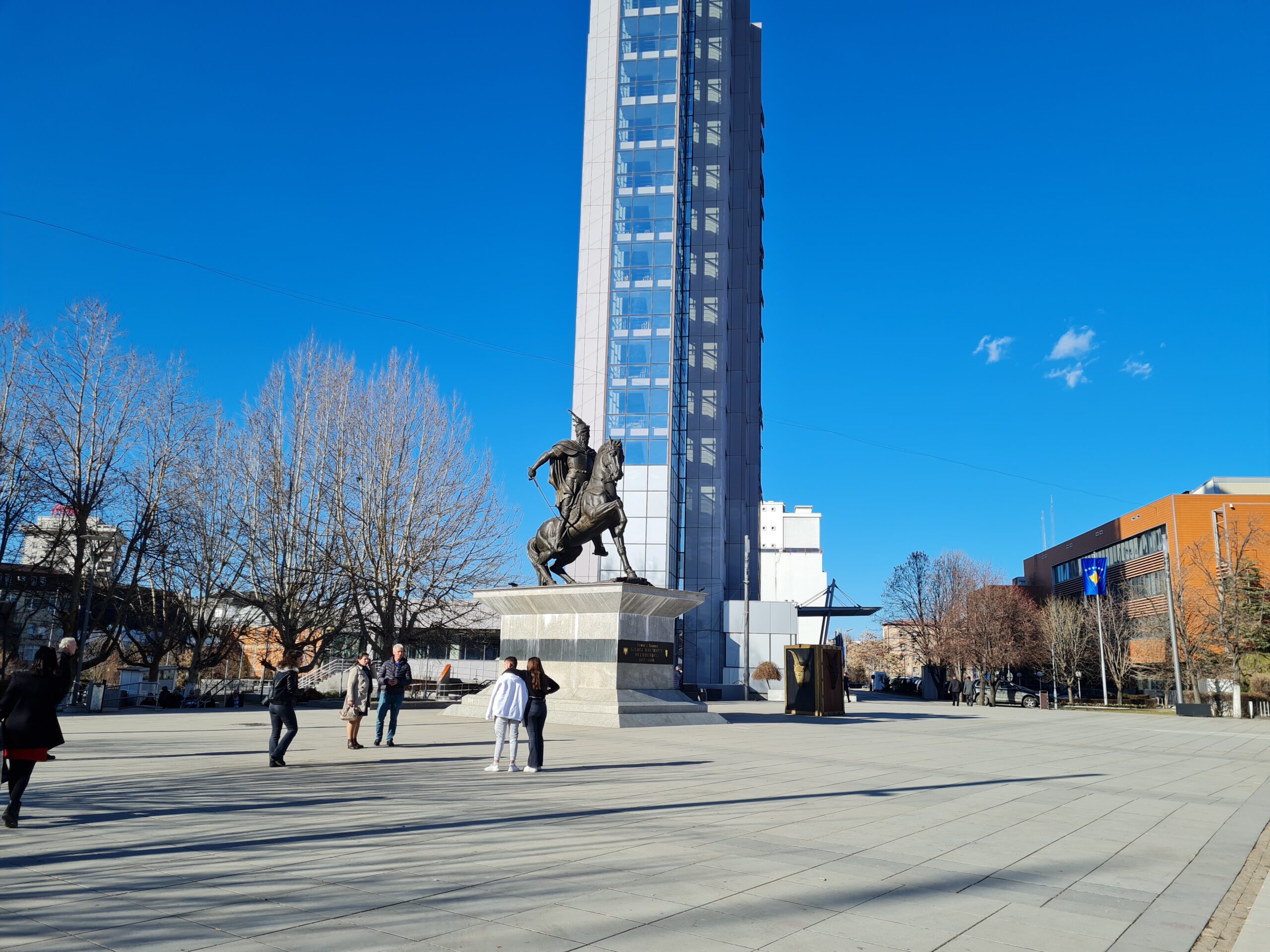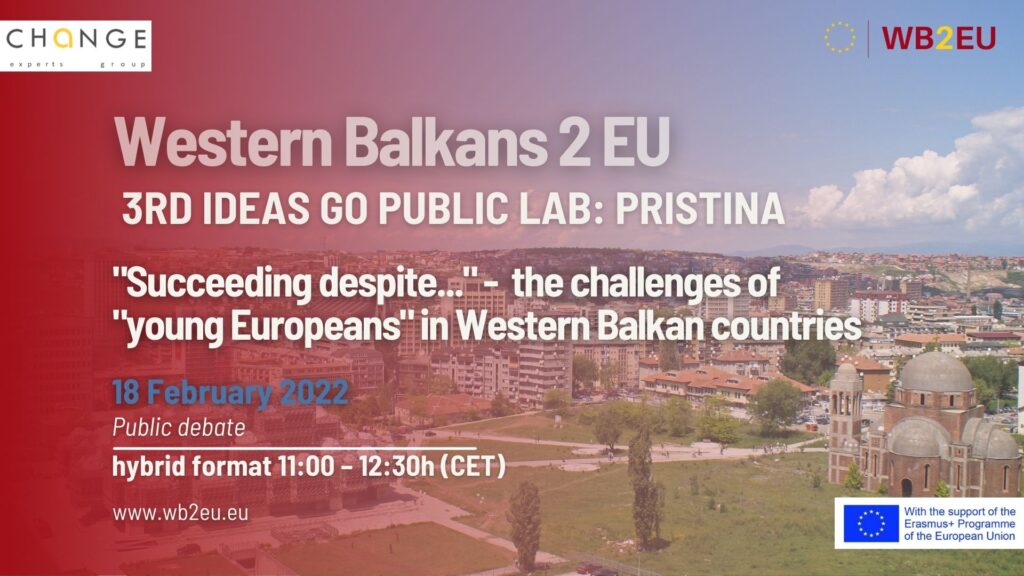Youth participation and culture are important for the Europeanisation and democratization of Kosovo, by European Western Balkans (EWB), 21 February 2022
PRISTINA – Participation of youth in creating policies and culture plays a significant role in the Europeanization and democratization of Kosovo, but young people and citizens must be heard by politicians, stressed the participants during the panel “Succeeding despite – The challenges of young Europeans “, organized by WB2EU network.
Editor in Chief of Kosovo 2.0 Besa Luci spoke about the experience of this portal, whose second-largest group of readers are young people in Kosovo. They have the opportunity to write various blogs on the Kosovo 2.0 portal about topics that concern them.
“A lot of issues that they are bringing up in this blog are really the issues that are actually faced by the society at large and it really made me think about how we think of youth and how we talk of youth, because in a lot of these blogs, what was distinct for me was that there were all written from a very personal experience that they went through, ”says Luci.
According to Luci, there are sometimes there is a tendency to think of youth as this like one group where age becomes a common denominator.
“Of course, age is important because it allows a lot of sharing of similar experiences but I would like the conversation to youth to go to the next stage, when we talk about youth as citizens and not through their age marker because I think it also ends up stripping them away from their agency as well, ”says Luci.
She stressed the importance of talking about fundamental and women’s rights, about LGBT rights, “about how different groups experience poverty and how different identity markers affect that as well”.
“When we think of democracy we tend to talk about freedom of expression, and we really think of the right of freedom of expression and the right to be listened to. I think this is important today, the right to be listened to, not just the right to speak. I think this applies to youth, ”says Luci.
Mimoza Kusari Lila, Member of the Parliament of the Republic of Kosovo, said that the government should take great responsibility and deliver concrete steps in fighting corruption,
justice, education.
She assessed that people need to be told, need to actually hear it constantly.“ Today, there has been for the first time in Kosovo a lot of implementation of the policies that they have promised including free university education, including scholarships for minorities, funding the start up. However, in this line of work, I think it needs more intensified communication with people. Because from being a political party that has started and grown from a grassroots and had been close to the people to a party that is governing based on its principles and promises. We need to communicate that ”, said Kusari-Lila.
Eroll Bilibani, Producer / Head, Dokufest, Kosovo, spoke about the importance of cultural festivals, such as Dokufest, for the promotion of Kosovo, both externally and internally. Dokufest has created this flavor that is known in Kosovo as a Dokufest spirit, but its journey was not that easy. Culture in Kosovo was financed through subsidies, once a year both at local and central level. The influence of culture on social economic development and otential was never recognized. It was seen as an activity that is entertainment to those who create it and those who experience it, “says Bilibani.
He told that Dokufest has increased economic activity, GDP in the amount of over 2.4 million euros and if consumption expenditures are included the annual impact is estimated to be over 4.7 million euros.
According to Bilibani, Dokufest has played a role in building the new history of Kosovo by creating an alternative space in which young people could learn, create and collaborate with others.
“This confirmed that culture is beyond entertainment for us that make and those to consume it. Dokufest and some other CSOs did the opposite of locked door policies. We gave opportunities, we didn’t considered youth as beneficiaries, they were our partners, their ideas they were always… if they had a good idea, they would go for that and we would help them “, he said.
The panel was organized within the WB2EU network, a long-term project gathering 17 think tanks and academic institutions from the Western Balkans and the EU until 2023. The project
aims to establish a network that shall become a reference point in the area of EU enlargement and democratization efforts to the Western Balkan countries. The network will focus on gathering information and research results on EU enlargement, supporting civic democratic engagement through the publication of a series of policy briefs and op-eds in major media outlets in all partner countries and fostering cooperation and creating a high knowledge exchange platform with public actors.



